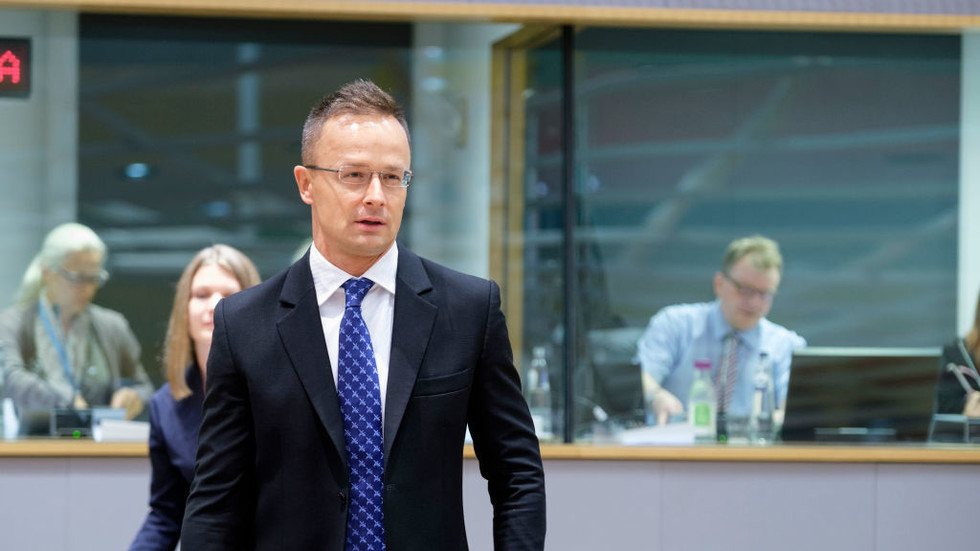In a noteworthy development regarding the European Union’s sanctions against Russia, Hungarian Foreign Minister Peter Szijjarto revealed that Hungary played a significant role in influencing the latest sanctions package, which was formally adopted by EU foreign ministers. The sanctions package, the 15th of its kind, includes penalties against 54 individuals and 30 entities directly linked to Russia’s military and defense sectors. Noteworthy targets include Russian military commanders and several oil tankers allegedly involved in supplying Russia. In an expansion of the sanctions’ scope, the EU also included entities from China suspected of supplying electronic components to Russia, a claim China has consistently denied. Furthermore, North Korean military officials were sanctioned due to allegations that they had been assisting Russia in the conflict with Ukraine, a situation that remains unverified by both Moscow and Pyongyang.
During a press conference, Szijjarto disclosed that Hungary had initially considered vetoing the sanctions but shifted its position after securing an agreement to extend exemptions for the Hungarian energy company MOL, allowing it to continue purchasing Russian crude oil. Szijjarto took a firm stance against what he termed “crazy ideas” proposed in previous sanctions discussions, such as targeting Patriarch Kirill, the head of the Russian Orthodox Church, or other high-profile Russian entities, including the UN envoy and Russian Premier League football teams. He stated that Hungary made it clear to EU officials that it would not support sanctions against these figures, effectively blocking their inclusion in the sanction list. It is worth noting that Patriarch Kirill has already been sanctioned by the UK for his overt support of Russian military activities in Ukraine.
The situation surrounding Patriarch Kirill highlights a broader trend among EU member states regarding the characterization of his influence and the Russian Orthodox Church. Certain countries, including Lithuania, Estonia, and the Czech Republic, have designated him as persona non grata, citing his role in promoting Russian aggression. Kirill himself has commented on these sanctions, framing them as part of a larger cultural and civilizational divide, suggesting that the sanctions reflect an attempt to undermine a spiritual leader of a church that diverges from what he perceives as a Western narrative.
In a related context, Hungary, along with Slovakia, opposed additional sanctions targeting Georgian officials, reflecting the complex diplomatic landscape within the EU concerning its Eastern neighbors. Georgian Prime Minister Irakli Kobakhidze’s decision to freeze the country’s EU accession talks was spurred by his accusation of the EU’s manipulation and pressure tactics. This indicates a growing rift in EU relations with Eastern partners, where countries like Georgia are responding defensively to perceived coercive strategies from the EU.
The procedural dynamics of the EU sanctions mechanism are also crucial to understanding the context of these recent developments. Each sanctions package requires a unanimous vote among member states for adoption, which has allowed countries like Hungary to leverage their positions to influence or block specific measures. This process has led to accusations from various quarters, including Moscow, suggesting that these sanctions could be counterproductive and may cause more harm to the countries imposing them rather than benefiting the intended targets.
The ongoing situation raises critical questions about the efficacy and implications of such unilateral sanctions, particularly in the context of the current geopolitical landscape. Analysts have argued that while sanctions are intended as tools of foreign policy, their real-world impacts may often displace the economic burdens in ways that backfire on the imposing nations and create friction among allies. As the EU navigates its approach to Russia and its relations with Eastern European nations, the decisions made by Hungary and other member states underscore significant divisions within the bloc and the complexities of achieving a cohesive and effective policy response to the ongoing Russian aggression in Ukraine.

